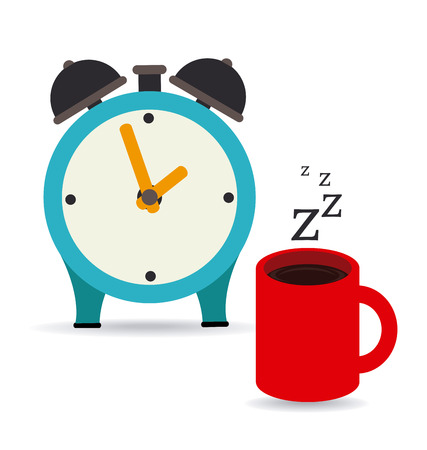Understanding Sleep Struggles in the UK
Sleep issues are a growing concern for many people across the United Kingdom, with a significant number of Britons reporting difficulties falling or staying asleep. These sleep struggles are influenced not only by personal habits but also by broader cultural and lifestyle factors unique to British society. From the long, dark winters that can affect mood and circadian rhythms, to the hustle and bustle of urban living, stress from work, and even the beloved tradition of late-night tea, many aspects of everyday life can contribute to disrupted sleep patterns. Additionally, the prevalence of screen time before bed and irregular routines further challenge natural sleep cycles. By recognising these common issues and understanding their roots in both culture and lifestyle, we can begin to explore practical ways to adjust daily routines for healthier sleep.
2. The British Evening Routine
The evening routine in the UK is shaped by a blend of tradition and modern lifestyle, both of which play a significant role in sleep quality. A typical British evening often starts with the ritual of supper, followed by a range of activities designed to help unwind after a busy day. Understanding these habits provides valuable insight into how nightly routines can support or hinder restful sleep.
Traditional Supper Choices
Supper, usually served between 6 and 8 pm, varies from light snacks to heartier meals. Many Britons favour dishes like beans on toast, soups, or sandwiches, while others opt for more substantial fare such as roast dinners or fish and chips, especially on weekends. The nutritional content and timing of these meals can greatly impact how easily one falls asleep.
| Common Supper Options | Sleep Impact |
|---|---|
| Beans on Toast | Light and easy to digest; may promote better sleep if not eaten too late. |
| Roast Dinner | Heavier meal; may cause discomfort if consumed close to bedtime. |
| Tea & Biscuits | Caffeine in tea can delay sleep; opt for herbal teas instead. |
| Soup or Stew | Nourishing and gentle on the stomach; ideal for an evening meal. |
After-Work Activities and Their Effects
The hours after work are often spent catching up with family, watching television, or engaging in hobbies. While these activities offer relaxation, excessive screen time or stimulating tasks late in the evening can disrupt natural sleep patterns. It’s common in British households to enjoy programmes like soaps or documentaries before bed, but it’s worth noting that blue light from screens may interfere with melatonin production.
Balancing Relaxation and Sleep Readiness
To create a more restful environment, many experts recommend setting aside at least 30 minutes before bed for calming routines such as reading a book, listening to soothing music, or practicing gentle stretches. Adopting small yet meaningful adjustments to traditional evening habits can make a noticeable difference in overall sleep quality.

3. Light Exposure and Sleep
One of the unique challenges to sleep in the UK stems from our country’s ever-changing daylight hours and indoor lighting habits. The long, bright summer evenings and short, grey winter days can play havoc with our natural circadian rhythms. Many Britons find themselves wide awake late into summer nights or struggling to feel alert during gloomy winter mornings. This shift can disrupt melatonin production, making it difficult to fall asleep or wake up refreshed.
Indoor lighting habits also play a significant role in this cycle. In many British homes, it’s common to rely on bright overhead lights well into the evening, often paired with screens from televisions, tablets, and phones. While these habits offer comfort and convenience, they can trick our bodies into thinking it’s still daytime, delaying the onset of restful sleep.
To help restore natural sleep patterns, consider embracing gentle evening routines that minimise artificial light exposure. Opt for softer, warmer bulbs after sunset and limit screen time at least an hour before bed. During darker months, make the most of any available daylight by spending time outdoors or near windows during the day. These small adjustments support your body’s innate rhythms and may encourage deeper, more restorative rest throughout the year.
4. Natural Ways to Wind Down
For many across the UK, finding a restful night’s sleep can be as much about gentle rituals as it is about routine. Embracing natural, holistic strategies rooted in British culture can offer soothing solutions that nurture both body and mind. One of the most beloved British traditions—herbal tea—remains a time-honoured way to relax before bedtime. Popular choices like chamomile, valerian root, or lavender infusions are known for their calming effects and are easily found at local shops. Pairing these with mindful evening activities can further support relaxation.
| Holistic Strategy | British Tradition | Suggested Practice |
|---|---|---|
| Herbal Teas | Evening cuppa | Brew chamomile or lavender tea an hour before bed to signal wind-down time |
| Aromatherapy | Lavender sachets in linen cupboards | Place a small lavender bag under your pillow for a gentle scent that promotes calm |
| Calming Music | Classical or folk tunes | Listen to soft British classical or traditional folk music during your evening routine |
| Meditation & Mindfulness | Quiet reflection after tea | Practice deep breathing or gentle meditation for 10 minutes to ease the mind |
| Light Reading | Bedtime story tradition | Read a favourite classic novel or poetry to encourage a tranquil mindset before sleep |
By integrating these gentle practices into your nightly routine, you create a nurturing environment that encourages better sleep naturally. These approaches not only honour cherished elements of British culture but also invite calmness and balance into everyday life, supporting overall wellbeing through simple, mindful adjustments.
5. Digital Boundaries Before Bed
Modern life in the UK often finds us scrolling through our phones, catching up on telly, or answering late-night emails just before bed. However, research shows that extended screen time—whether it’s your mobile, tablet, or laptop—can have a notable impact on sleep quality. The blue light emitted from these devices can suppress melatonin production, making it harder to nod off and affecting the overall restfulness of your sleep.
Understanding the Impact of Screen Time
It’s not only the light itself but also the mental stimulation from reading the news or replying to messages that keeps your mind active when it should be winding down. Many Brits find themselves tossing and turning after spending too much time online, which contributes to common sleep issues such as trouble falling asleep or waking up feeling groggy.
Balanced Tips for Setting Digital Limits
Establishing digital boundaries doesn’t mean cutting out screens entirely; it’s about making mindful adjustments that fit with a typical British routine. Try switching devices off at least 30 minutes before bedtime and opt for calming activities instead—a warm cup of herbal tea, a good book, or gentle stretching can all help signal to your body that it’s time to relax. Consider using ‘Do Not Disturb’ modes or setting devices to night mode in the evenings. Even small changes like charging your phone outside the bedroom can make a difference.
Creating a Calm Evening Ritual
If you’re sharing a home, encourage everyone to wind down together by reducing household screen use in the hour before bed. This could be a great time for conversation or preparing things for the next day. By establishing digital boundaries suited to your lifestyle, you’ll be supporting healthier sleep patterns and waking up ready to face another busy British day.
6. Creating a Restful British Bedroom
Transforming your bedroom into a sanctuary of calm is a key step towards improving sleep quality, especially when addressing common British sleep issues. The way you design your sleeping space can greatly influence how well you unwind and drift off each night. Here are some natural and practical tips to help you shape a truly restful British bedroom:
Embrace Calming Colours
Start by selecting a colour palette that encourages relaxation. Soft, muted tones such as gentle blues, sage greens, or warm neutrals are favoured across the UK for their soothing effects. These colours evoke tranquillity and work in harmony with the often overcast British weather, helping you feel cocooned whatever the season.
Layer Textures for Comfort
The British have long appreciated the comfort of layered textiles. Add plush throws, knitted blankets, and soft cushions made from natural fibres like wool or cotton. Not only do these textures provide tactile comfort, but they also add a homely charm that makes your bedroom feel inviting year-round.
Choose Quality Bedding
Invest in high-quality bedding to support restful slumber. Opt for breathable materials such as organic cotton or linen—both popular choices in the UK climate—to help regulate your body temperature through chilly winters and humid summer nights alike.
Minimise Clutter and Embrace Simplicity
A tidy space fosters a clear mind. Keep surfaces uncluttered and limit decorative items to those that spark joy or soothe the senses, such as a favourite book or a small vase of dried lavender—a beloved natural remedy for better sleep in many British households.
Create an Atmosphere with Lighting
Lighting plays a significant role in setting the mood for rest. Use soft, warm-toned bulbs and consider adding dimmer switches or bedside lamps for gentle illumination in the evenings. Blackout curtains are also popular throughout the UK to block out early summer sunrises or streetlights, helping maintain darkness when it matters most.
Bring in Natural Elements
Add touches of nature to your bedroom by incorporating indoor plants like English ivy or lavender, which not only purify the air but also bring a sense of peace and countryside charm indoors.
By mindfully curating your bedroom environment with calming colours, comforting textures, and thoughtful details inspired by British sensibilities, you’ll be better equipped to address sleep challenges and enjoy deeper, more restorative rest every night.

